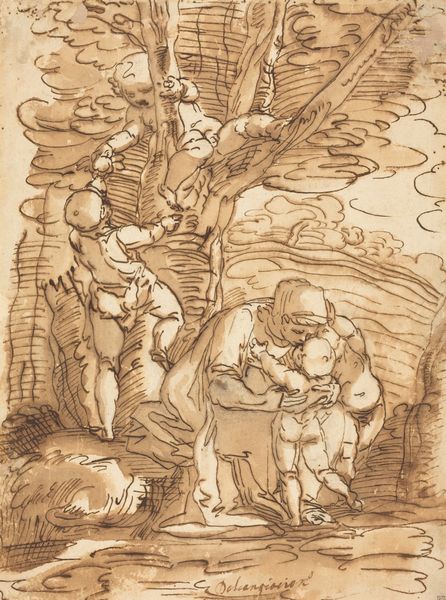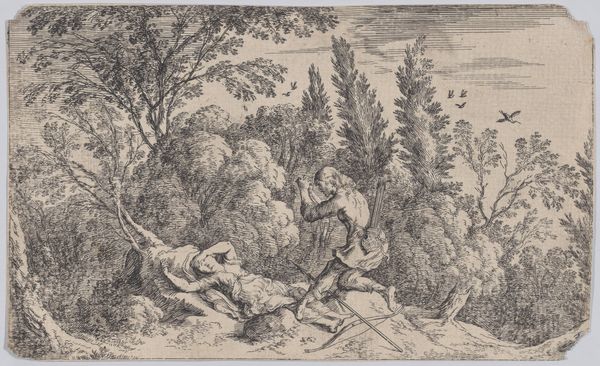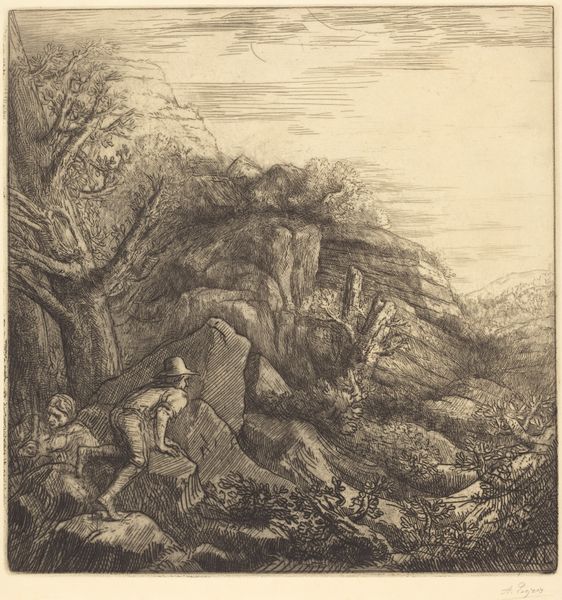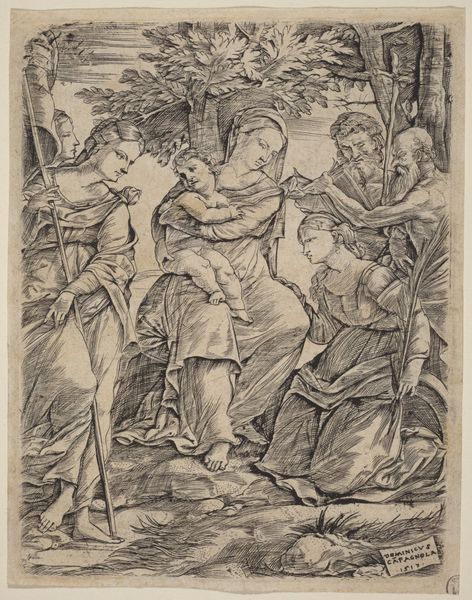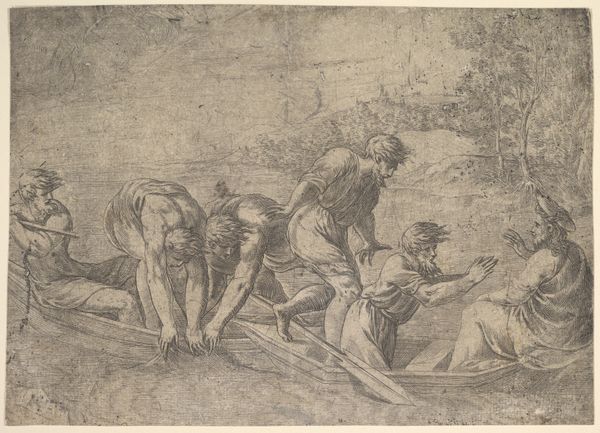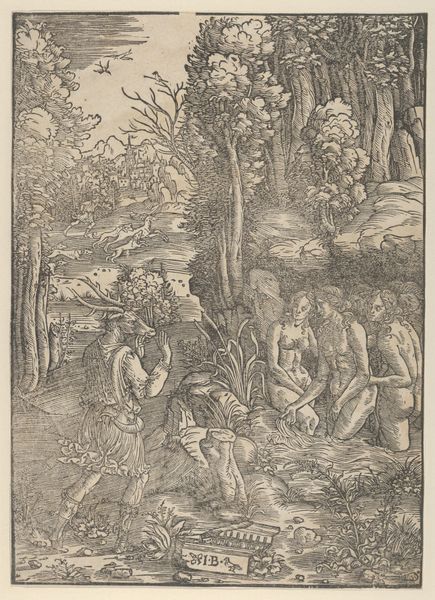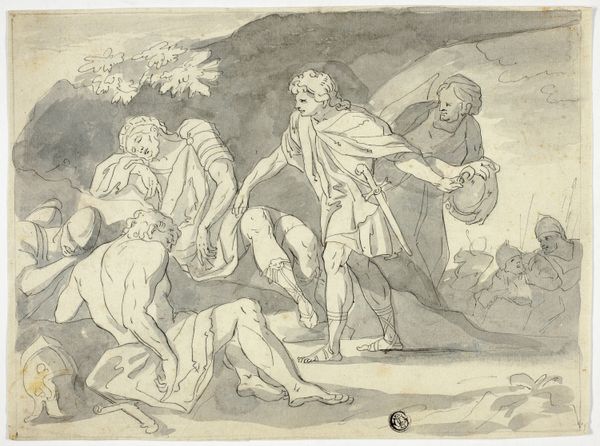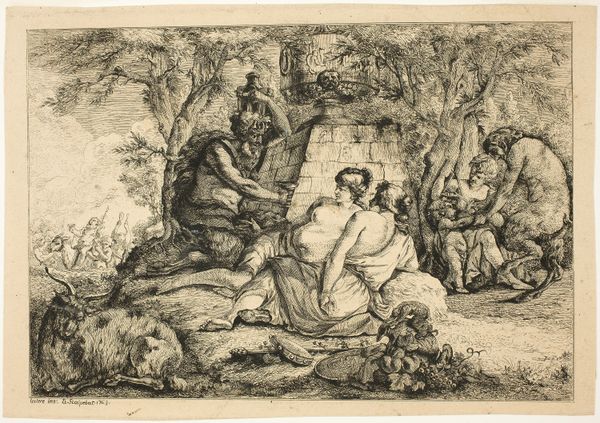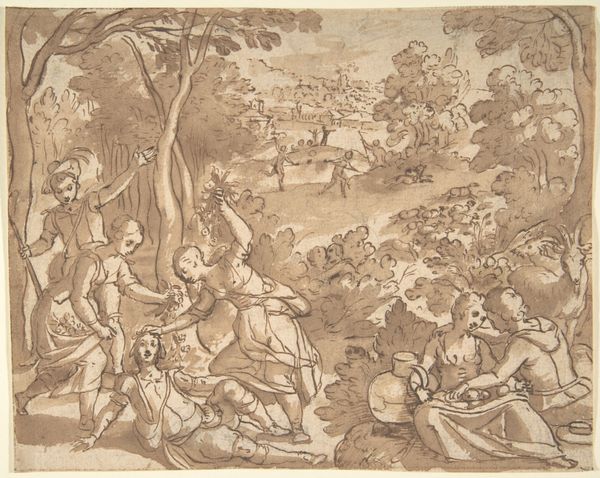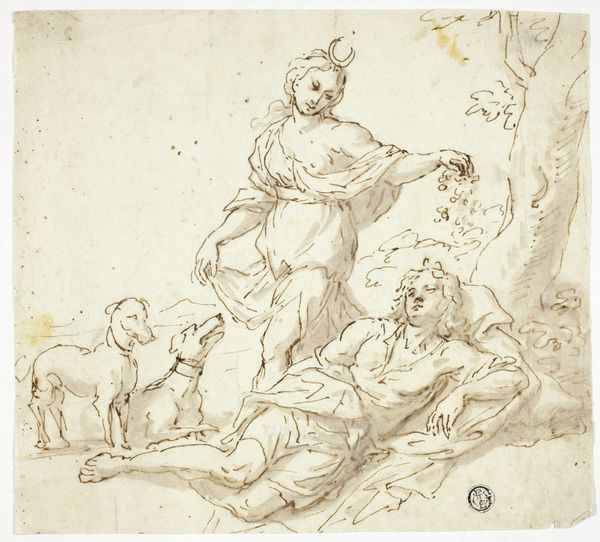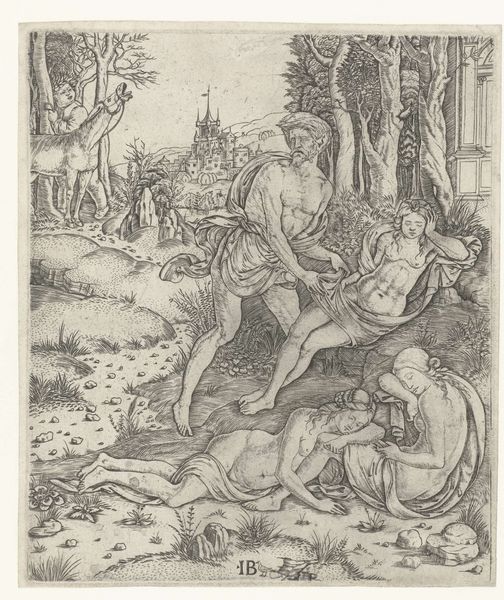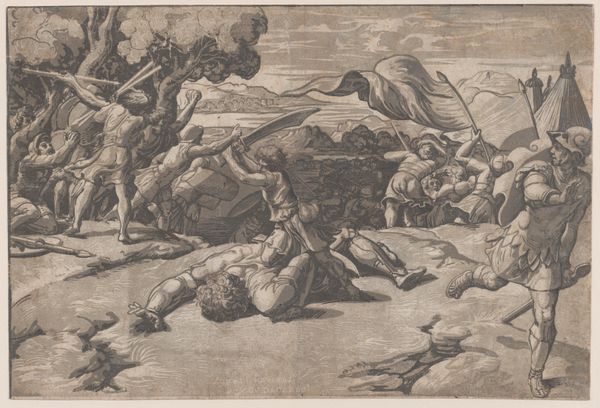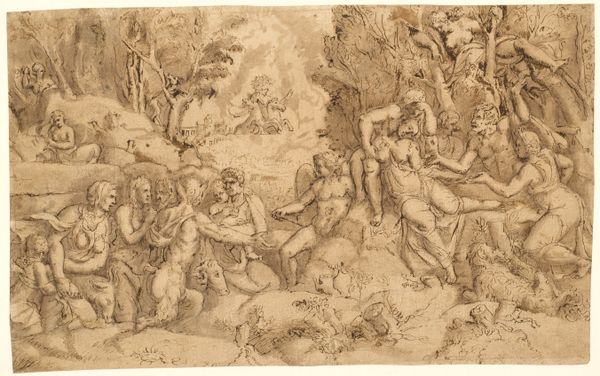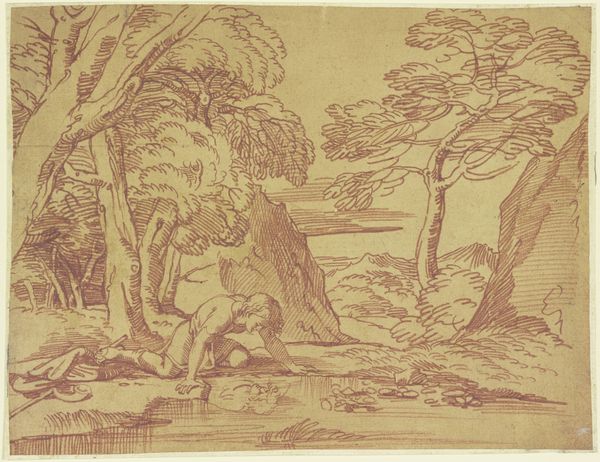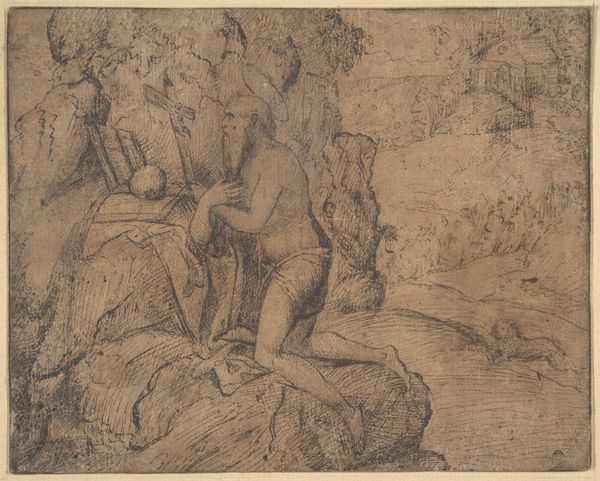
drawing, chalk
#
drawing
#
baroque
#
landscape
#
figuration
#
chalk
Copyright: Public Domain
Curator: Let’s discuss Nicolas Poussin’s “Children Playing Leapfrog,” a chalk drawing held at the Städel Museum. Editor: It has an innocent, idyllic quality to it. It's really capturing the playful energy of children. What underlying themes can we interpret within this seemingly simple depiction of childhood? Curator: That "innocence" is deceptive. We must ask ourselves: Whose children are these? Poussin was working in a time of rigid social hierarchies, with immense disparities in lived experience. What does it mean to idealize childhood in such a context? The bodies are remarkably similar – is this an attempt to project universal ideas of childhood or masking social identities? Editor: That's a point I hadn't considered. The drawing does romanticize children, maybe obscuring social issues. Are you saying that it might unconsciously be promoting some ideals from the ruling classes at that time? Curator: Exactly. Also, let's examine the pastoral landscape – is it real, or a carefully constructed scene? Remember, landscape was emerging as a genre. How did wealthy landowners deploy idealized landscapes to justify their land control and socio-political power? Editor: So the drawing potentially reinforces these social dynamics. Curator: Absolutely. Furthermore, Poussin places these figures from antiquity. How might this impact its historical reading, or, more relevantly, misreading? What connotations could it carry that elude a contemporary viewer? Editor: It’s interesting to realize that even something seemingly so carefree like children playing can reflect a larger historical and social framework. I'll be looking more carefully from now on. Curator: It is in these intersections that we arrive at art's true power, I think. Looking beneath the surface is just the beginning.
Comments
No comments
Be the first to comment and join the conversation on the ultimate creative platform.
